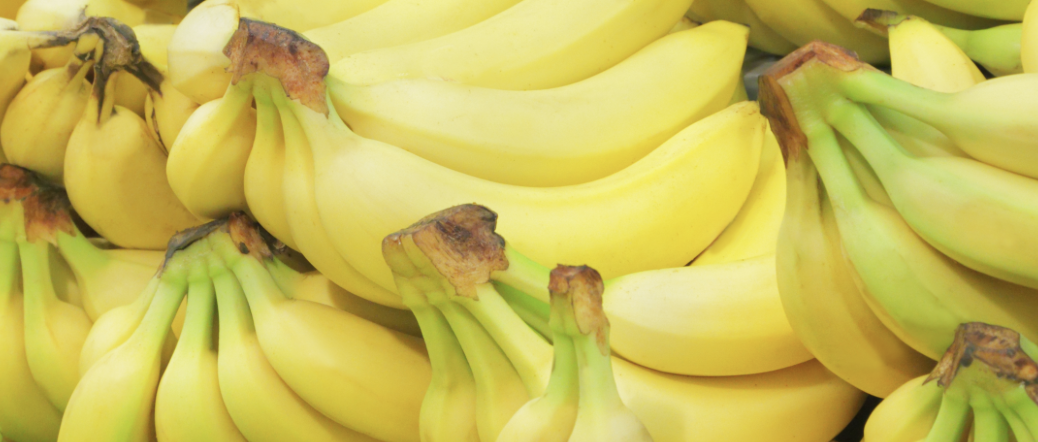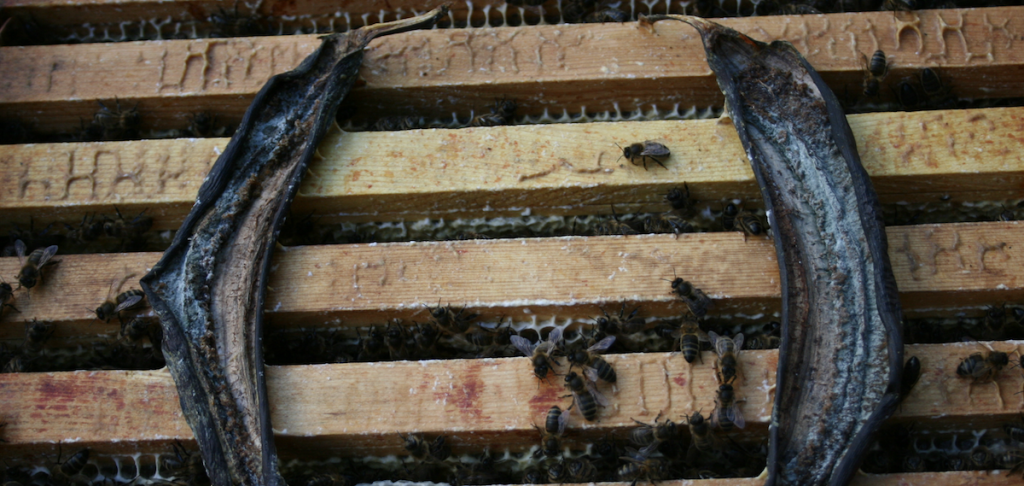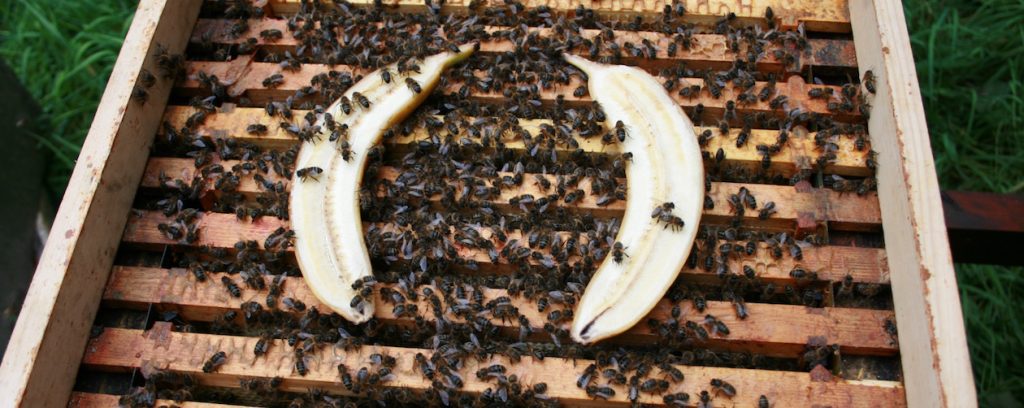So – the banana thing. Here’s what was left after a month, a black and shrivelled thing with a strong smell of propolis. But what are the conclusions if any?
As you can see, it’s completely dried up and black, the pulp has been removed and all that is left is the skin and what might have been seeds…?
Do bananas have seeds?
Well they must have otherwise – what it the raison d’etre?
Anyway, the whole thing smells of propolis only.
Effects on the Bees
The bees seem very strong and healthy but then we’ve had about a month of benevolent weather and a strong ivy flow. No ill effects to be seen and I didn’t see dead bees being shovelled out during the banana or see them hanging out the front.
Chalkbrood effects
As for the chalkbrood – well there is plenty of brood about the place and the pattern is good but it hasn’t gone away you know. It’s still there but not so much I think but then they were treated with MAQS beforehand which seems to trigger some vigorous housekeeping.
Conclusion?
Wrong time of the year and completely unscientific but the bees didn’t seem to suffer at all and I’d certainly try it again mid summer.
Unless anyone out there can come up with a better explanation for the shape, and indeed the size, of a banana – I’d say it’s so they can elegantly encircle the brood nest like this:
Click here for more on Chalkbrood and the Banana Thing
Copyright © Beespoke.info, 2016. All Rights Reserved.



Bananas don’t have seeds, viable ones at least. All commercial banana plants are cuttings from another so basically all are the same plant!
Very interesting about chalkbrood. I suppose the banana sugars feed the bees too…
Well you learn something every day!
Not sure about the sugars – when I first added the banana the bees hopped straight onto it and started nibbling away at it but whether that was just in order to dismantle and remove it or ingest and digest it I don’t know.
Hi Jim, wild bananas do have seeds, but I guess you are referring to the domesticated varieties of banana, in which the seeds have been cultivated away? Many years ago I bought bananas while travelling by train through Java, Indonesia and those small bananas had many surprisingly large dark brown seeds in them.